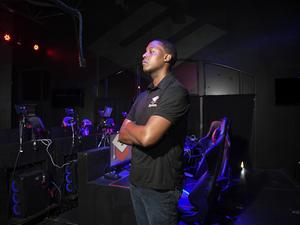
North Texas businesses have some big advantages -- relatively affordable housing, low cost of living, an educated workforce, and our world-class brisket might help, too. But we don't often talk publicly about the challenges here in DFW -- one of the foremost of which is the disconnect between the area's large corporations and the startups that could help drive innovation in those organizations.
Small businesses and startups have trouble finding corporate investors that may be uninterested in major disruption or changing their business model, local founders say. It can also be difficult to break into the networking circles needed to make contact with these kinds of investors.
“There's not a lack of ideas in large companies, there's a lack of taking those ideas and testing them.”
Seeing the opportunity to fill this gap and to cash in on the benefits of the area’s business climate, 2THEDGE relocated from Atlanta in 2014 to the DFW region in order to help startups and small businesses connect with enterprise businesses. Noticing most of their business was coming from Texas and the Midwest also helped spur the company’s move to Dallas.
“New companies are coming to challenge existing players," Tyson Harmon, founder and CEO of 2THEDGE said. “It is a challenge working and bringing innovation into [enterprise companies]; the foundation of any company is making sure you have an alignment with your vision and what the addressable market is.”
Acting as a sort of middleman, 2THEDGE helps pair large companies, including Fortune 200 and 500 organizations, with their startup counterparts based on technologies or products the large companies are looking to develop. The process can be beneficial to both sides. Enterprise companies are able to access and harness the technology they need in order to stay relevant and competitive, and the startups are able to expand their reach and hopefully profit in the process.
According to Harmon, smaller companies are able to navigate the spaces where the larger ones can’t. For example, while enterprises may have more funding, they are less able to nimbly transition to keep up with ever-changing trends; or the fact that small businesses tend to be more responsive to customers and market demands due to smaller staffs which provide easier access to executive-level employees.
“Business leaders need to recognize that they need to do something to either: One, improve performance, or Two, stay competitive in this hyper competitive market,” Harmon said. “There's not a lack of ideas in large companies, there's a lack of taking those ideas and testing them.”
Funded through bootstrapping, 2THEDGE has since grown to have a network of about 1,500 suppliers that they work with when a company comes to them with a specific issue. Harmon said that most of the suppliers he works with have large, strong engineering teams, proven technical competency in their field, and have around 50 or more employees. While declining to give names, he said the company is currently engaged in 15 agile proof of concepts and recently added 2 new opportunities to their portfolio.
“We are working with clients that are really trying to push the edge of what's possible with technology,” Harmon said. “We got to remember that we're all working toward the same common goal, which is not only how can we create profits, but how can we use that wealth to reinvest in our community.”








